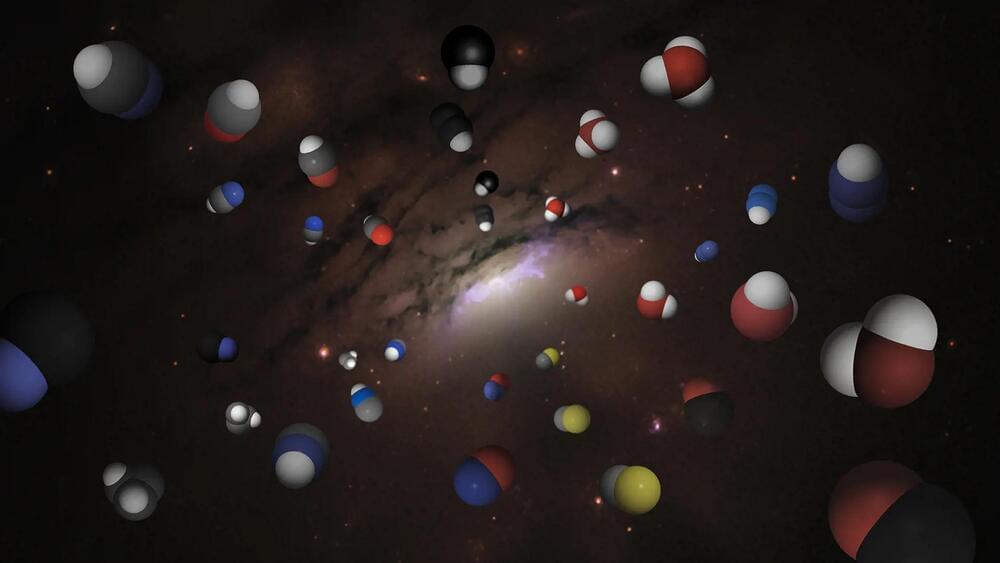Two galaxies in the early universe, which contain extremely productive star factories, have been studied by a team of scientists led by Chalmers University of Technology in Sweden. Using powerful telescopes to split the galaxies’ light into individual colours, the scientists were amazed to discover light from many different molecules – more than ever before at such distances. Studies like this could revolutionise our understanding of the lives of the most active galaxies when the universe was young, the researchers believe.
When the universe was young, galaxies were very different from today’s stately spirals, which are full of gently-shining suns and colourful gas clouds. New stars were being born, at rates hundreds of times faster than in today’s universe. Most of this however, was hidden behind thick layers of dust, making it a challenge for scientists to discover these star factories’ secrets – until now. By studying the most distant galaxies visible with powerful telescopes, astronomers can get glimpses of how these factories managed to create so many stars.
In a new study, published in the journal Astronomy & Astrophysics, a team of scientists led by Chalmers astronomer Chentao Yang, used the telescopes of NOEMA (NOrthern Extended Millimetre Array) in France to find out more about how these early star factories managed to create so many stars. Yang and his colleagues measured light from two luminous galaxies in the early universe – one of them classified as a quasar, and both with high rates of star formation.









Comments are closed.